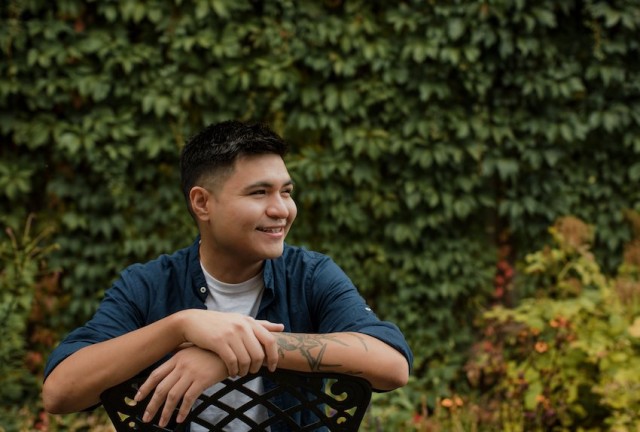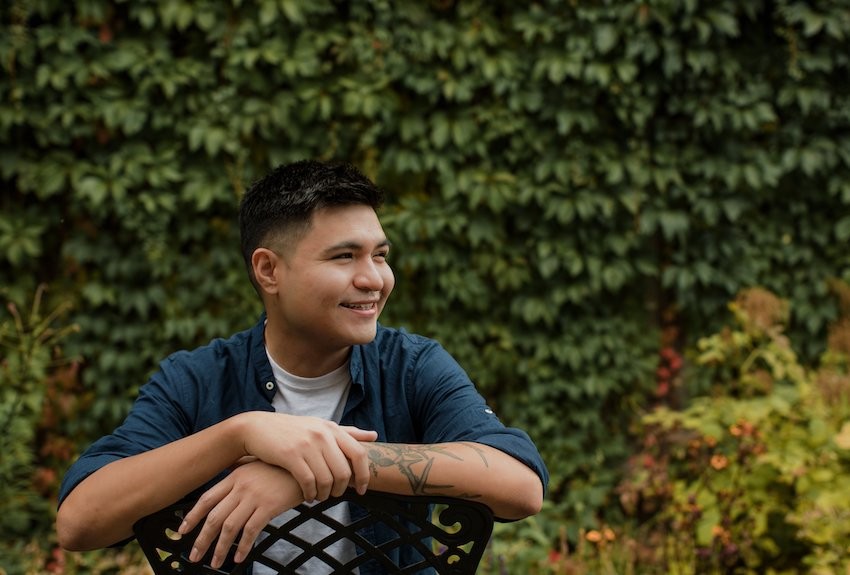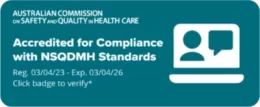Accessibility Tools
- Content scaling 100%
- Font size 100%
- Line height 100%
- Letter spacing 100%
The SANE Blog

Disability, mental health and wellbeing
Content note: this blog mentions ableism, internalised ableism and trauma.
Liel K. Bridgford is a proud disabled person and former mental health counsellor. She shares some thoughts on living with a disability and supporting your mental health, including the benefits of opening up and finding role models in the disability community.
Disability is any physical, brain or mind difference that, combined with the environment, creates barriers to living a full life. The definition of disability can also include mental health issues. This is sometimes called having a psychosocial disability or psychiatric disability.
Our society is filled with inaccessible spaces for people living with disabilities, as well as negative attitudes around disability. In Australia, people with disabilities experience several social disadvantages, like a lower likelihood of achieving higher education and a higher chance of being outside the workforce.
These social inequalities can all impact mental health. Understanding how your disabilities, environment and mental health influence each other can help you navigate challenges and care for yourself.
How can living with a disability in our society affect mental health?
- Your health is complicated and interrelated. Physical symptoms of your disability can affect your motivation, mood or whether you take part in social or spiritual activities. For instance, chronic pain may mean you stay home more due to worry about pain flaring up.
- Using support and health systems can be difficult or even traumatic for people with disabilities. Finding the right support often takes time, energy and persistence. Some people have ‘invisible’ symptoms and are dismissed or not believed by professionals. This can leave people feeling helpless or lost. Not meeting criteria for some support options can also be frustrating and lower motivation to seek the help you need.
- Past challenging experiences relating to disability may also impact your daily life. This may include how you acquired your disability, childhood health treatments, bullying, discrimination or exclusion. For instance, past trauma could impact how you feel about going to see a doctor, or how comfortable you are with other people.
- Being excluded, discriminated against or misunderstood can make it difficult to feel optimistic or connect with others. Witnessing others’ negative treatment of disabled people can impact your confidence to take part in social activities. Being left out due to these attitudes can influence your self-esteem or outlook on life. Many disabled people take on some of society’s negative attitudes about living with a disability. This is called ‘internalised ableism’.
- Many people with disabilities have grown up disconnected from others with disabilities. At the same time the benefits of the disability community are misunderstood by many. So you may feel you’re the only one with your particular disability or struggles.
- People with disabilities often have additional daily living costs and lower incomes than people without disabilities. This can be due to the cost of long-term healthcare and discrimination around employment. Financial uncertainty and stress can certainly impact your mental health.
- Other social factors also play a part in your mental health. Every interaction with your environment can have an impact. Inaccessible public transport, for example, might leave you feeling anxious or stressed. If you belong to another marginalised community, such as Aboriginal and Torres Strait Islander peoples, women, migrants or the LGBTQIA+ community, you may face unique challenges.
What can you do?
- Connect with others who have similar experiences. It can provide a sense of belonging, community and purpose. Other people can also be a source of knowledge and support. You can do this by joining a disability organisation or finding a support group.
- Open up about your experience can bring relief. If you have been hiding parts of your experience, or even avoided talking about your disability, speaking up can be hard, but worth it.
- Find role models in the disability community. There is disability information and joy in every social media platform. Just type #disability to get started.
- Find art, literature, movies and other entertainment created by people with disabilities. Try to enjoy content that is disability-led for a wholesome, real representation. You can do this by searching for shows written by people with disabilities, or books written by disabled authors. The Arts Access website has more suggestions.
- Recognise internalised ableism. Identifying the negative expectations, reactions, emotions or self-talk relating to your disability is crucial. For example, if you catch yourself thinking, "Why can’t I just do…?", take note. Remind yourself this is your ableism talking and offer yourself a different view. You could start with "I’m worthy the way I am".
- Consider asking support systems for more as needed. Ask different people questions about what is available and think about what would help you live the life you want right now. For instance, you may like to consider putting boundaries in place, or develop your confidence through training.
- Some people find counselling helpful to unpack feelings about their disability or related experiences. You can try to search for a therapist with experience or interest in the field. If you think you are experiencing high distress or finding it hard to cope, more support may be useful.
- Speaking up is important. Advocating for change takes effort, time and energy, and these may be limited. If and when you can, talk to an advocate or a health care provider about what isn’t working or the things that could help improve your mental health. This can be anything you find useful, such as finding a hobby, finding a support group, accessing community events or getting a support worker.
- Know your rights. Ask about your rights in health services, community access, employment and support options. For example, you have a right to choose service providers, and to access equal employment, even if the employer needs to make some modifications.
Living with a disability and society’s ableism can have implications for your mental health. An important first step in supporting yourself is knowing what this feels and looks like for you. Plus, finding more sources of support and information can positively impact the way you feel about your disability and yourself.
Where to from here?
- Learn more about disability rights at the Australian Human Rights Commission.
- Find disability advocacy organisations through Australian Federation of Disability Organisations.
- Visit Women With Disabilities Australia.
- If you need support, SANE’s free counselling service is available on 1800 187 263 or online, Monday to Friday 10am-8pm AEST/AEDT
Related Posts
By accepting you will be accessing a service provided by a third-party external to https://www.sane.org/










